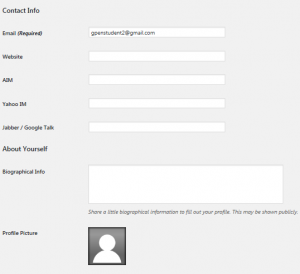Some education and classroom service providers are playing fast and loose with young people’s online safety; even material downloaded by teachers can be a privacy risk for students, say leading privacy advocates in Canada.

Online education apps are widely used in all levels of private and public education delivery these days, promising convenience, access to the latest information and engaging pedagogic techniques that make use of advanced digital technology. Earth Vision image.
Web-based education services allow students to create personal or project accounts, share online content, and communicate and collaborate with their teachers and classmates. Such services and applications are widely used in all levels of private and public education delivery these days, promising convenience, access to the latest information and engaging pedagogic techniques that make use of advanced digital technology.
But a recent review of popular online apps used in Canadian classrooms identified privacy issues related to educational applications targeted at students in kindergarten up to grade 12.
The Office of the Privacy Commissioner of Canada (OPC) worked alongside the Ontario Information and Privacy Commissioner’s Office (IPC) to review more than two dozen apps and platforms. The review was part of the fifth annual Global Privacy Enforcement Network (GPEN) Privacy Sweep, with 24 data protection regulators from around the world participating.
So-called “sweepers” examined the privacy policies published by several education application providers, looking at the personal information being collected, and reviewing the controls in place to protect personal information.
While many service providers are carefully considering the needs of younger users when it comes to privacy, others are falling short.
“We were pleased to find that many of the apps we looked at are taking important steps to protect the privacy of children and youth, for example, by offering kid-friendly explanations about why personal information is being collected,” Privacy Commissioner of Canada Daniel Therrien said when releasing the report.
“Unfortunately, we also found cases where educational apps need to do better. We were concerned to find cases where websites encouraged students to provide more personal information than was actually necessary.”
And it’s not just the students: When signing up on behalf of their students, classroom educators may, in fact, be agreeing to an educational service providers’ data management practices that are inconsistent with their school boards’ online safety policies and not compliant with existing laws, such as Ontario’s Municipal Freedom of Information and Protection of Privacy Act.

Some educational websites and online services ask students to provide more personal information than was actually necessary, according to Canada’s Privacy Commissioner.
The report recommends that educators read privacy policies and terms of service carefully to understand how students’ information may be collected, used and disclosed, and to consult with school officials before selecting online educational services. Educators should also provide students with ongoing guidance on how to configure and use the educational services in privacy-enhancing ways.
As they are in many situations, privacy policies and published information about how service providers handle personal information varies in quality and is sometimes hard to find. What’s worse, as many as a third of the services did not even seek consent from students or parents for the personal information collection practices they follow. The services often did not provide teachers with resources for obtaining parental or student consent in other ways.
The report sweepers also found cases where too much personal information was collected – for example, a blogging platform designed for use in schools that had fields to collect students’ instant messaging handles, photos and bios.
Many services failed to make it easy – or even possible – for users to delete the personal information that had been collected, whether or not is was still needed.
Only a handful of services had different consent mechanisms for younger and older students, which report authors said was surprising, given the identified differences in the ability of younger and older children to understand safe, appropriate privacy practices.
More information about privacy and online educational services and the work of the IPC is contained in a pdf document at: https://www.ipc.on.ca/wp-content/uploads/2016/11/online-educational-services.pdf

Web-based education services allow students to create personal or project accounts, share online content, and communicate and collaborate with their teachers and classmates. Connected Classroom Image provided by Brett Jordan under the Creative Commons “Attribution” license. University of Waterloo class photo (detail).
-30-



